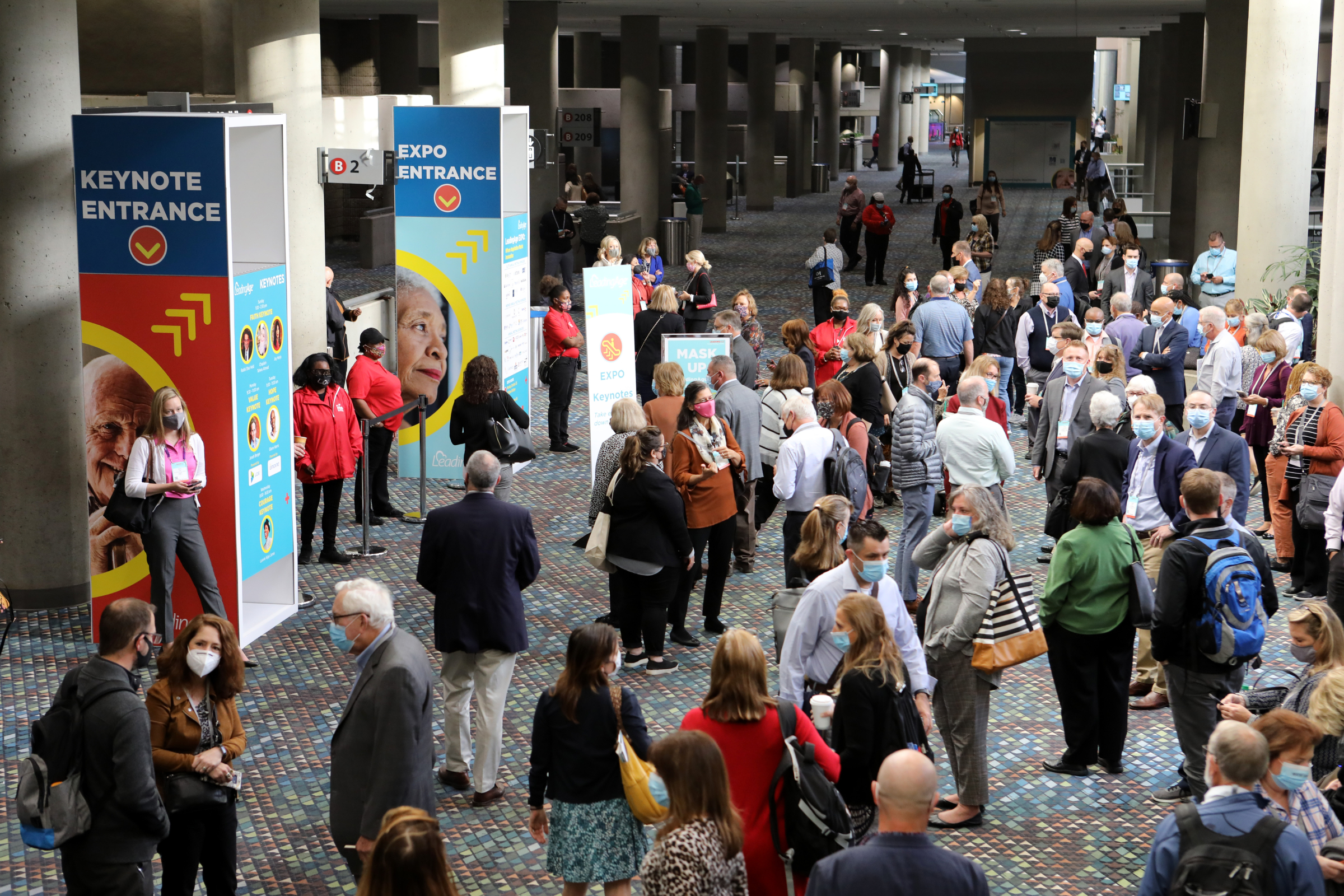LeadingAge Immigration Priorities Addressed in the Omnibus Appropriations Bill
Congress recently passed a $1.5 trillion Consolidated Appropriations Act of Fiscal Year (FY) 2022, which includes funding for all federal agencies, along with $13.6 billion in aid to Ukraine. The bill, and the accompanying report language, sets aside significant funds for initiatives that address the visa backlog, and two administrative immigration priorities that are important to LeadingAge.
The FY 2022 omnibus appropriations bill provides the U.S. Citizenship and Immigration Services (USCIS) with $275 million to address the backlogs and delays with processing refugee, asylum and immigration benefit applications. The funding will help many foreign heath care workers who have been waiting for permission to enter the U.S. through employment-based visa petitions. Unfortunately, the pandemic has slowed the pace at which U.S. officials have conducted interviews with visa seekers, which is one of the final steps needed to gain permanent residency.
Additionally, the omnibus appropriations act’s accompanying report addresses two concerns that LeadingAge and a coalition of long-term and post-acute care (LTPAC) providers have advocated to change.
Request for resolution on long-processing of Employment Authorization Applications at USCIS. The coalition sent a letter to USCIS on December 3, 2021, which expressed concern about long processing times for an Employment Authorization Document (Form I-766/EAD), that some health care providers are experiencing. If you are not a U.S. citizen or a lawful permanent resident, you may need to prove that you can work in the United States by presenting an Employment Authorization Document.
The USCIS is often taking more than a year to process the EAD renewals, which lengthens the renewal processing timelines on healthcare industry workers. Some employees have to stop working due to USCIS processing delays for EAD renewals, while others are at risk of losing work authorization due to the delays. Unfortunately, these scenarios add to the various staffing shortage issues experienced by LTPAC providers.
The omnibus appropriations bill includes report language that requests the USCIS review whether the EAD form can be more narrowly tailored to reduce paperwork and workloads, while still ensuring proper eligibility and security. USCIS should also state its plan for achieving this goal, including any anticipated resource savings and timeliness metrics, in the agencies semi-annual briefing to Congress.
Visa Backlog Blocks Nursing Help Address Widespread Nursing Shortage. There is an estimated 10,000 foreign-trained nurses that have been on the waiting list for an interview, with an average wait time from 12 to 18 months. On November 8, 2021, LeadingAge and the coalition sent a letter to U.S. Department of State (DOS), requesting Secretary Blinken expedite the visa application process for foreign-trained nurses in light of the ongoing COVID-19 public health crisis. The letter also recommends several creative solutions DOS could implement, which includes allowing virtual interviews, and waivers of interviews for visa applications that have been significantly stalled for the past 2 years.
The FY 2022 omnibus appropriations bill report language requests the Secretary of State, not later than 90 days after enactment of the bill, to submit a report to the Committees on Appropriations, regarding lessons learned from the pandemic — including the adoption of remote services, the feasibility of increased interview waivers and remote visa interviews, and any other process improvements that would enhance consular services domestically and overseas.
While report language does not have the force of law, we are pleased the language addressed some of what we asked for. The Department of State report language can be found here, and the USCIS report language can be found here. The omnibus bill text here.

Most Recommended
October 15, 2025
 Shutdown Week Three: Impact of Ongoing Closure on Affordable Housing
Shutdown Week Three: Impact of Ongoing Closure on Affordable Housing
February 24, 2026
Fiscal Year (FY) Funding 2026
October 07, 2025
Immigrant Workforce Matching Program Brings Workforce Relief
Recently Added
February 26, 2026
HUD Interim Rule Revokes Eviction Notification Requirements
February 26, 2026
President Trump's SOTU: Key Takeaways
February 26, 2026



